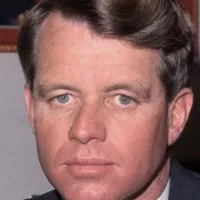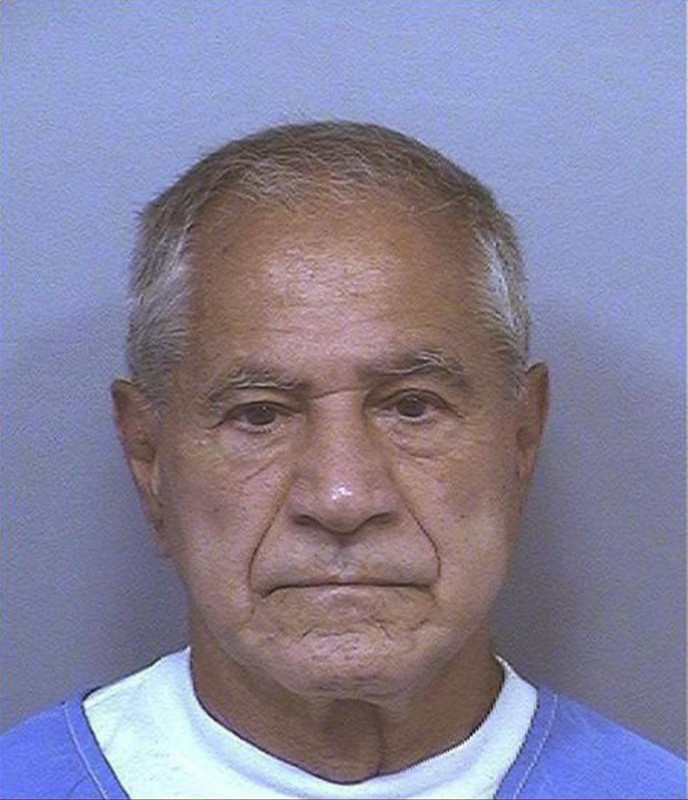Sirhan Sirhan, a Palestinian-Jordanian, assassinated Senator Robert F. Kennedy on June 5, 1968. Kennedy, the younger brother of President John F. Kennedy and a Democratic presidential candidate, died the following day. This assassination, occurring five years after John F. Kennedy's death, has fueled various conspiracy theories surrounding the event.
March 19, 1944: Birth of Sirhan Sirhan
Sirhan Bishara Sirhan was born on March 19, 1944.
1960: Rafer Johnson Wins Olympic Gold
Rafer Johnson won an Olympic gold medal in 1960. He was later one of the individuals who subdued Sirhan Sirhan after the assassination of Robert F. Kennedy.
1966: Sirhan Sirhan Joins Rosicrucian Order
In 1966, Sirhan Sirhan joined the Ancient Mystical Order of the Rose Cross, a Rosicrucian organization.
June 5, 1967: Sirhan's Motivation Linked to War Anniversary
On June 5, 1967, Sirhan Sirhan attended a Jewish Zionist parade celebrating Israel's victory in the Arab-Israeli war, which reportedly triggered his actions against Robert F. Kennedy. Sirhan later claimed that the combination of anger over the war's anniversary and alcohol consumption provoked his behavior. This revelation was made in a 1980 interview.
June 1967: Middle East Conflict Influences Sirhan
In June 1967, Sirhan Sirhan's motives were influenced by the Middle East conflict. His anger towards Robert F. Kennedy was intensified by Kennedy's support for Israel during the Six-Day War. Sirhan's fixation on Kennedy was documented in his notebooks, where he expressed support for communism and disdain for American capitalism. These revelations came to light after Sirhan's arrest.
1967: First Anniversary of the Six-Day War
The assassination of Robert F. Kennedy occurred on the first anniversary of the 1967 Six-Day War.
May 18, 1968: Sirhan's Diary Entry Reveals Motive
On May 18, 1968, a diary entry by Sirhan Sirhan revealed his growing obsession with assassinating Robert F. Kennedy. His motivation stemmed from his belief that Kennedy's support for Israel during the June 1967 Six-Day War was a betrayal. The entry showed Sirhan's determination to act before June 5, 1968. This was found during a search of his apartment after his arrest.
June 5, 1968: Assassination of Robert F. Kennedy
On June 5, 1968, Sirhan Sirhan assassinated Senator Robert F. Kennedy at the Ambassador Hotel in Los Angeles shortly after Kennedy's speech to supporters.
February 10, 1969: Sirhan Sirhan Attempts to Plead Guilty
On February 10, 1969, Sirhan Sirhan's lawyers attempted to enter a guilty plea for first-degree murder in exchange for life imprisonment. Sirhan himself asked to be executed. The judge denied both motions.
April 17, 1969: Conviction of Sirhan Sirhan
On April 17, 1969, Sirhan Sirhan was convicted of first-degree murder for the assassination of Robert F. Kennedy.
1971: Sirhan's Prison Transfers Begin
In 1971, Sirhan Sirhan was housed in the Adjustment Center at San Quentin State Prison before being transferred to the Correctional Training Facility in Soledad, California. This marked the beginning of multiple transfers during his incarceration.
February 1972: California Supreme Court Decision Impacts Sirhan Sirhan's Sentence
In February 1972, the California Supreme Court's decision in People v. Anderson, which ruled against the death penalty, led to Sirhan Sirhan's sentence being commuted to life imprisonment.
1972: Sirhan Sirhan's Death Sentence Commuted
In 1972, Sirhan Sirhan's death sentence was commuted to a life sentence following the Furman v. Georgia Supreme Court case.
February 1973: Sirhan's Release Demanded by Black September
In February 1973, the Black September Organization demanded Sirhan Sirhan's release during a hostage situation at the Saudi Arabian Embassy in Khartoum. This demand highlighted Sirhan's controversial status as a political figure at the time.
1974: Dedication in Communist Manifesto
In 1974, Sirhan Sirhan was named as a courageous political prisoner in the dedication of Bill Ayers and Bernardine Dohrn's communist manifesto, Prairie Fire: The Politics of Revolutionary Anti-Imperialism. This dedication was controversial and reflected Sirhan's political notoriety.
1980: Sirhan Discusses Motivations in Interview
In 1980, Sirhan Sirhan claimed that alcohol and anger over the 1967 Arab-Israeli war anniversary were factors in his actions. He expressed that these reasons were not considered by the parole board. This was discussed in an interview with Mehdi, then president of the American-Arab Relations Committee.
1980: Sirhan's Interview Reveals Parole Frustrations
In 1980, during an interview with M. T. Mehdi, Sirhan Sirhan discussed his frustrations with the parole board's disregard for what he viewed as mitigating circumstances, like alcohol and anger, contributing to his actions. He expressed disappointment in the parole denial process.
1982: Sirhan Appeals to Parole Board
In 1982, Sirhan Sirhan told the parole board that he believed Robert F. Kennedy would oppose his unequal treatment under the law if he were alive. Sirhan argued that despite the severity of his crime, it should not be a reason for denying him fair treatment.
1989: Sirhan Sirhan's Interview with David Frost
In 1989, Sirhan Sirhan stated in an interview with British journalist David Frost that his motivation for assassinating Robert F. Kennedy was Kennedy's support of Israel.
1992: Sirhan Moved to California State Prison
In 1992, Sirhan Sirhan was transferred to the California State Prison in Corcoran, California, where he remained until 2009. During this period, he lived in the Protective Housing Unit before being placed under harsher conditions in 2003.
1994: Efforts to Overturn Sirhan Sirhan's Conviction Begin
Starting in 1994, Sirhan Sirhan's lawyer began efforts to overturn his conviction, arguing that Sirhan was hypnotized and framed.
June 5, 2003: Sirhan Sirhan's Lawyer Petitions for Case Relocation
On June 5, 2003, Sirhan Sirhan's lawyer petitioned for the case to be moved to Fresno, arguing that Sirhan could not receive a fair hearing in Los Angeles.
2003: Sirhan Faces Harsher Conditions
In 2003, Sirhan Sirhan was moved to a stricter lockdown within the California State Prison in Corcoran, California. This move was part of ongoing adjustments to his incarceration conditions.
2005: Death of Sirhan Sirhan's Lawyer
Sirhan Sirhan's lawyer, Lawrence Teeter, died in 2005.
October 2009: Sirhan Transferred for Safety
In October 2009, Sirhan Sirhan was transferred to Pleasant Valley State Prison in Coalinga, California, for his safety, where he was placed in a solitary cell. This move was part of a series of transfers throughout his incarceration to manage his security.
November 26, 2011: New Trial Motion Filed for Sirhan Sirhan
On November 26, 2011, a new trial motion was filed for Sirhan Sirhan based on the claim that two guns were fired during the assassination, and Sirhan's was not the one that killed Kennedy.
2011: Sirhan Denied Parole for 14th Time
In 2011, Sirhan Sirhan was denied parole for the 14th time. Paul Schrade, one of the shooting victims, testified in support of Sirhan, suggesting a second shooter was responsible for Robert F. Kennedy's death. Despite this, parole was denied due to Sirhan's lack of remorse and failure to acknowledge the crime's gravity.
November 22, 2013: Sirhan Transferred on JFK Assassination Anniversary
On November 22, 2013, Sirhan Sirhan was transferred from Corcoran to Richard J. Donovan Correctional Facility in San Diego County. The transfer coincided with the 50th anniversary of President John F. Kennedy's assassination, though officials stated it was a routine matter unrelated to the anniversary.
January 5, 2015: Sirhan's Motion Denied by U.S. District Judge
On January 5, 2015, U.S. District Judge Beverly Reid O'Connell in Los Angeles denied Sirhan Sirhan's motion. Sirhan failed to prove 'actual innocence' to excuse his delayed federal court appeal. Despite presenting various theories about the events on June 5, 1968, Sirhan did not contest that he fired eight rounds in the Ambassador Hotel's kitchen pantry. The judge concluded that no reasonable juror would doubt his guilt. The decision occurred on January 5, 2015.
2016: 15th Parole Hearing Denial
In 2016, Sirhan Sirhan's parole was denied for the 15th time. Despite support from Paul Schrade, who believed in a second shooter theory, Sirhan's inability to remember the shooting and lack of expressed remorse led to the denial.
2018: Robert F. Kennedy Jr. Interview
In 2018, Robert F. Kennedy Jr. stated in an interview that he believed Sirhan Sirhan did not kill his father and that a second gunman was involved.
August 30, 2019: Sirhan Stabbed in Prison
On August 30, 2019, Sirhan Sirhan was stabbed multiple times by another inmate and hospitalized. His condition was stable, and he returned to prison two days later after being discharged from the hospital.
August 27, 2021: Parole Granted to Sirhan Sirhan
Sirhan Sirhan was granted parole on August 27, 2021, after 15 years of denials.
January 13, 2022: Parole Blocked for Sirhan Sirhan
California Governor Gavin Newsom blocked Sirhan Sirhan's release on parole on January 13, 2022.
March 1, 2023: Parole Denied for Sirhan Sirhan
Sirhan Sirhan was denied parole again on March 1, 2023.
Mentioned in this timeline

Gavin Newsom is an American politician and businessman currently serving...

John F Kennedy JFK was the th U S President...
California is a U S state on the Pacific Coast...

Robert F Kennedy Jr an American politician environmental lawyer author...

Los Angeles is the most populous city in California and...

Robert F Kennedy RFK was a prominent American politician and...
Trending

4 months ago Casper Ruud Becomes Global Ambassador for Mango Man: A Fashionable Partnership

10 months ago Camila Osorio to face Higuita Barraza in Copa Colsanitas; Predictions and Odds

6 months ago Iga Swiatek dominates Potapova in Cincinnati Open, securing a swift victory in 73 minutes

3 months ago Jannik Sinner Dominates, Reaches Paris Masters Final, Eyes No. 1 Ranking Return

3 months ago ATP Almaty Open: Medvedev vs Walton Predictions and Betting Odds, Darderi Mentioned

4 months ago Addison Rae on the Tonight Show: Interview and performance highlight rising star.
Popular

Thomas Douglas Homan is an American law enforcement officer who...

Martin Luther King Jr was a pivotal leader in the...

XXXTentacion born Jahseh Dwayne Ricardo Onfroy was a controversial yet...

William Franklin Graham III commonly known as Franklin Graham is...

Instagram is a photo and video-sharing social networking service owned...

Jupiter is the fifth and largest planet from the Sun...
